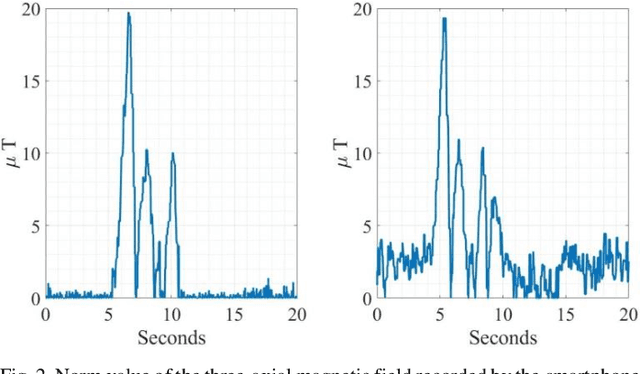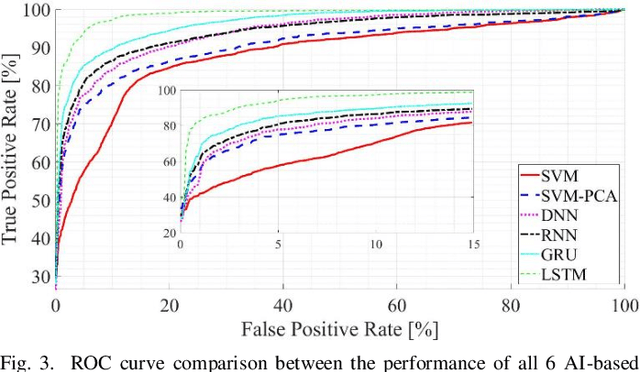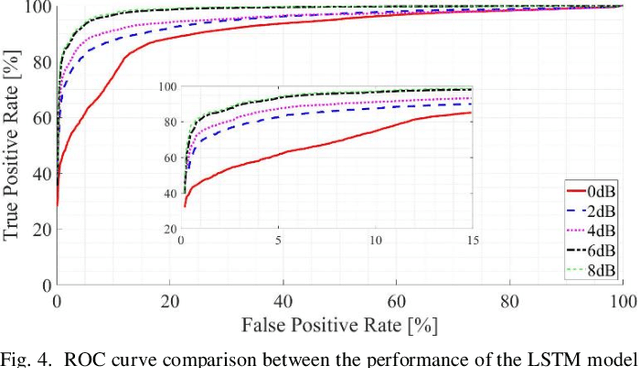Kanna Nahir
Multiclass Permanent Magnets Superstructure for Indoor Localization using Artificial Intelligence
Jul 14, 2021



Abstract:Smartphones have become a popular tool for indoor localization and position estimation of users. Existing solutions mainly employ Wi-Fi, RFID, and magnetic sensing techniques to track movements in crowded venues. These are highly sensitive to magnetic clutters and depend on local ambient magnetic fields, which frequently degrades their performance. Also, these techniques often require pre-known mapping surveys of the area, or the presence of active beacons, which are not always available. We embed small-volume and large-moment magnets in pre-known locations and arrange them in specific geometric constellations that create magnetic superstructure patterns of supervised magnetic signatures. These signatures constitute an unambiguous magnetic environment with respect to the moving sensor carrier. The localization algorithm learns the unique patterns of the scattered magnets during training and detects them from the ongoing streaming of data during localization. Our contribution is twofold. First, we deploy passive permanent magnets that do not require a power supply, in contrast to active magnetic transmitters. Second, we perform localization based on smartphone motion rather than on static positioning of the magnetometer. In our previous study, we considered a single superstructure pattern. Here, we present an extended version of that algorithm for multi-superstructure localization, which covers a broader localization area of the user. Experimental results demonstrate localization accuracy of 95% with a mean localization error of less than 1m using artificial intelligence.
* Accepted to IEEE Transactions on Magnetics
 Add to Chrome
Add to Chrome Add to Firefox
Add to Firefox Add to Edge
Add to Edge